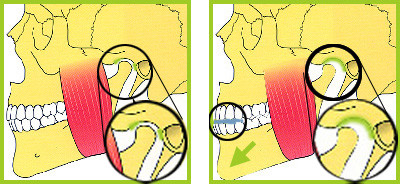Dental prosthesis
Constructing teeth with post and core artificial abutment
I use different techniques in constructing teeth. Usually I make the cast posts displayed on the pictures and always mask the teeth with ceramic caps. Often I put pre-manufactured titanium screws in the teeth and according to up to date dental principles I frequently choose to implant non-metalloid posts hardened with fibreglass. In these cases I can build up teeth right away with the pre-manufactured template and the photo-polymerization filling.
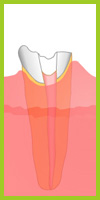
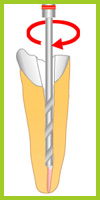
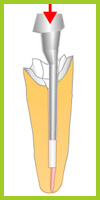
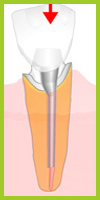
Preparing crowns, caps and bridges
Until today the method for substituting teeth deficiency and broken teeth is to make bridges and crowns. I mainly do fixed metal-ceramic replacements and use only nickel-free alloy to avoid allergies. For patients who are allergic to metal I use platinum or gold alloys or if it is possible non-metalloid synthetic porcelain.
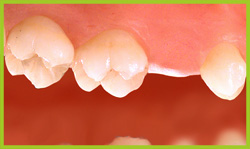
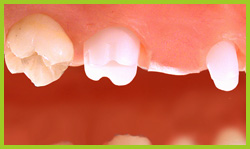
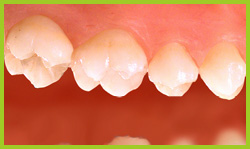
Non-metalloid ceramic replacements
Parallel with the most recent dental disciplines I strive to make non-metalloid replacements. I consider crowns made out of synthetic porcelain as the best choice because of its outstanding resistance against breakage.
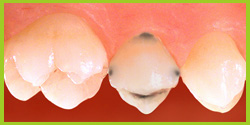
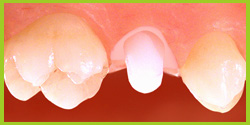
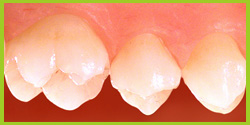
Replacements with telescopic anchorage
Unfortunately not always we have the essential amount of teeth to make the fixed teeth replacements. In such a case I use replacements with telescopic anchorage. By doing this I prepare a primary and a secondary precious metal crown and by setting the friction power between the two, I can achieve a very stable and proper setup for the patient.
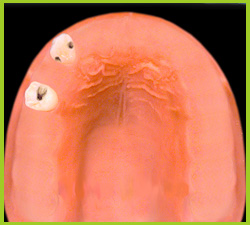
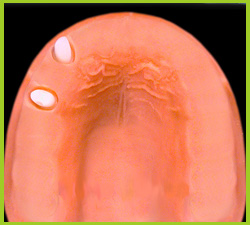
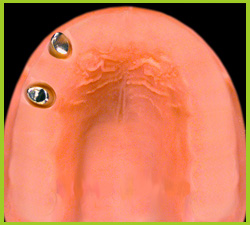
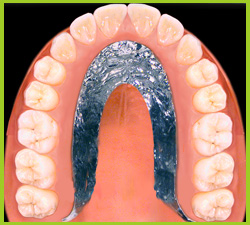
Partial or full denture
The making of a full denture is prepared for a toothless jaw. Consequently the stability cannot be so strong if it was fixed to a tooth. Though I can achieve a reliable stability by thoroughly searching for the barrier between the moving and the non-moving mucosa and closing the denture at this point.
For enhancing the comfort feeling the upper dentures can be implemented in a titanium hard palate that is very light and it conducts heat better than conventional plastic. During the making of a partial denture, the original teeth are not harmed and I try to do my best to deliver the smallest surfaced metal-structured replacements.
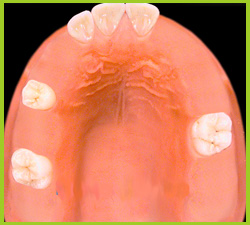
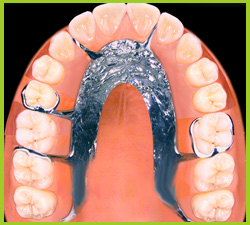
Making night guards
The pain coming from the abrasion of the jaw-joint cartilage is quite usual. The cause of this is night-time teeth grinding, if one has an intact denture. In our rushing world we all live under stress and this is why the masticatory muscles are contracting spasmodically during night times that lead to teeth grinding. By doing this not just the tooth enamel gets worn but the surface of the joint cartilage.
This can be the root cause of an indefinite head-ache. By using a splint I can move the upper and lower jaws out of this spasmodic position and this way the cartilage surfaces can heal themselves that obviously reduces pain.
